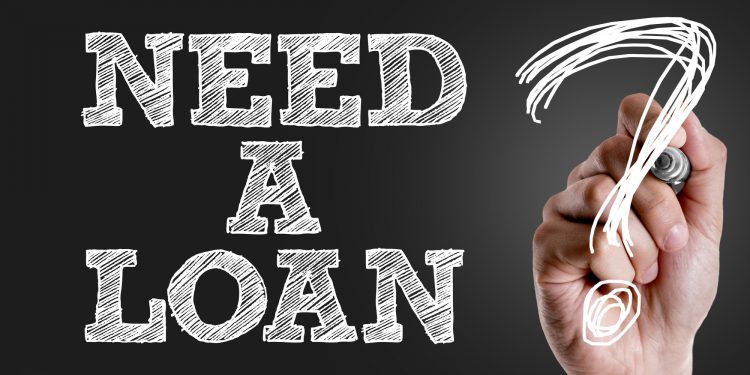A Comprehensive Guide to Home Loans: Provider and Options Explained
Charting the world of home mortgage can be complicated. Various options exist, each with one-of-a-kind features and effects for prospective homeowners. Understanding the distinctions between government-backed and standard fundings is essential. The application process entails thorough documentation and pre-approval steps that lots of neglect. As debtors commence on their home-buying journey, knowing just how to take care of these obligations successfully might mean the difference between financial security and hardship. What techniques can equip them on this path?
Understanding Home Loans: Types and Terms
Understanding the numerous kinds of home loans and their connected terms is crucial for possible homeowners, as it outfits them with the expertise required to make enlightened monetary decisions. Mortgage can be extensively classified into adjustable-rate and fixed-rate home loans. Fixed-rate home mortgages keep a constant interest price over the life of the lending, providing security in month-to-month settlements. Cash Advance. Conversely, variable-rate mortgages include rate of interest that might change after a preliminary set period, possibly resulting in lower first repayments but raised future costs
Extra terminology is essential for quality. Principal refers to the funding amount borrowed, while passion is the expense of loaning that quantity. The term of the finance indicates its period, typically varying from 15 to three decades. Comprehending these fundamental principles allows prospective purchasers to browse the complex landscape of home financing, ensuring they pick the right financing choice that lines up with their economic situation and long-term goals.
Standard Fundings vs. Government-Backed Loans
A substantial distinction in home financing exists in between government-backed lendings and conventional lendings, each satisfying various debtor needs and conditions. Standard loans are not guaranteed or assured by the federal government and typically need greater credit report and down settlements. They are usually interesting debtors with stable financial backgrounds, as they might supply competitive passion prices and terms.
In comparison, government-backed fundings, such as FHA, VA, and USDA finances, are made to aid certain teams of consumers, consisting of novice buyers and experts. Cash Advance. These car loans generally include reduced deposit needs and even more adaptable credit criteria, making them accessible to a broader variety of individuals
Ultimately, the choice in between government-backed and standard loans pivots on the debtor's monetary circumstance, long-term objectives, and eligibility, making it vital to carefully assess both choices before deciding.

The Function of Rate Of Interest Rates in Home Financing
Rate of interest play a crucial function in home funding, influencing debtors' decisions in between set and variable rate loans. The option between these options can significantly affect regular monthly repayments, affecting total cost. Understanding exactly how rate of interest operate is crucial for anybody steering via the home mortgage procedure.
Fixed vs. Variable Rates
Buyers encounter an important choice when selecting in between taken care of and variable rates, as this selection significantly affects the cost of funding gradually. Fixed-rate home mortgages supply security, securing in an interest price for the life of the funding, which can be useful in a rising passion price atmosphere. This predictability enables house owners to budget plan more successfully. On the other hand, variable-rate home mortgages, or variable-rate mortgages (ARMs), normally begin with reduced initial rates that can vary based on market problems. While this might result in reduced first repayments, customers deal with the risk of boosted rates in the future. Inevitably, the choice between variable and set prices depends upon individual financial situations, threat tolerance, and expectations pertaining to future rate of interest trends.
Influence On Month-to-month Settlements
When evaluating home financing alternatives, the impact of rate of interest rates on monthly repayments is a vital element to contemplate. Rate of interest straight influence the general expense of loaning, influencing just how much a borrower will certainly pay every month. A lower rates of interest results in smaller regular monthly repayments, making homeownership more budget-friendly. Alternatively, greater prices can substantially enhance month-to-month responsibilities, possibly straining a house owner's spending plan. In addition, the financing term plays a crucial duty; longer terms may spread settlements out but can lead to paying even more passion gradually. Recognizing just how rate of interest communicate with car loan quantities and terms is crucial for consumers to make educated financial decisions and select a mortgage that aligns with their long-lasting financial objectives.
Home Mortgage Brokers vs. Direct Lenders: Which Is Right for You?
When considering a mortgage, possible consumers should comprehend the distinct functions and duties of home loan brokers and straight lending institutions. Each alternative provides its very own advantages and disadvantages, which can considerably affect the overall cost of funding. An educated choice calls for mindful analysis of these variables to establish the ideal fit for individual requirements.
Roles and Responsibilities Defined
Steering the intricacies of home funding calls for a clear understanding of the roles and duties of home mortgage brokers and direct loan providers. Home mortgage brokers work as intermediaries, linking borrowers with lending institutions. They analyze a debtor's economic situation, curate loan choices, and guide customers through the application process, frequently leveraging numerous lender partnerships to secure beneficial terms. Conversely, direct lenders, such as financial institutions and helpful site lending institution, provide fundings directly to customers. They handle the entire financing process, from application to funding, with a concentrate on their very own products. Each alternative provides unique opportunities for obtaining financing, making it crucial for debtors to review their needs and choices when determining in between involving a mortgage broker or working with a direct lending institution.
Benefits and drawbacks Contrast
Picking between a mortgage broker and a direct loan provider can significantly impact the home financing experience, as each option provides special advantages and drawbacks. Mortgage brokers act as intermediaries, providing accessibility to numerous lending institutions and possibly far better prices, while simplifying the funding process. However, they might charge costs and depend on payment structures that might influence their recommendations. On the other hand, direct lending institutions streamline the process by supplying internal loans, which can result in faster approvals and less difficulties. Alternatively, they might have a restricted selection of products and much less flexibility regarding rates. Inevitably, the decision depends upon private choices, financial scenarios, and the preferred level of assistance throughout the home loan journey.
Price Ramifications Assessed
While examining the price ramifications of home loan brokers versus straight lenders, possible homeowners have to consider different aspects that can greatly impact their general expenditures. Home loan brokers commonly bill costs for their services, which can vary significantly, influencing the general lending expense. They typically have access to a broader array of funding items and affordable prices, possibly conserving consumers cash in the long run. On the other hand, direct loan providers might use an extra straightforward procedure with potentially lower in advance prices, but their loan options may be limited. It is necessary for home owners to compare rate of interest, costs, and terms from both lenders and brokers, ensuring they make an educated choice that lines up with their monetary objectives and needs.
The Mortgage Application Refine: What to Expect

The home mortgage application procedure can usually really feel intimidating for lots of candidates. It typically begins with collecting essential paperwork, including proof of earnings, credit report, and personal identification. Lenders use this details to analyze the candidate's economic security and determine funding eligibility.
Next, applicants submit a formal application, which may entail completing on the internet types or supplying details personally. During this stage, lending institutions review numerous factors, such as debt-to-income ratio and credit history, to choose funding terms.
When pre-approved, the lender will perform a complete appraisal of the home to determine its value lines up with the lending amount. This stage might likewise include additional history checks.

After final approvals and problems are fulfilled, the financing is refined, bring about the closing stage. Understanding each step encourages candidates, making the journey smoother and a lot more workable as they move towards homeownership.
Tips for Handling Your Home Mortgage Properly
Successfully maneuvering the home mortgage application process is just the beginning of a liable economic journey. Taking care of a mortgage needs attention to a number of crucial methods. First, consumers must develop a clear spending plan that fits regular monthly mortgage repayments, real estate tax, and insurance coverage. Consistently examining this budget plan helps prevent overspending and guarantees timely settlements.
In addition, making additional payments when feasible can considerably reduce the loan principal and complete rate of interest paid over time. Borrowers must also keep open lines of communication with their lending institution, particularly in times of economic difficulty. This can result in possible services such as loan modifications or refinancing options.
Ultimately, it is advisable to keep track of credit history regularly. A good credit rating can offer possibilities for better financing terms in the future. Fast Cash. By adhering to these suggestions, property owners can navigate their car loan responsibilities efficiently, guaranteeing long-term financial health and wellness and security
Often Asked Questions
What Are Closing Costs and Just How Are They Calculated?
Closing More hints prices incorporate costs linked with wrapping up a home loan, consisting of appraisal, title insurance coverage, and lending origination costs. These prices generally range from 2% to 5% of the funding quantity, varying based on location and lender.
Can I Get a Mortgage With Bad Credit Scores?
Yes, individuals with bad credit scores can receive a mortgage, though alternatives might be limited. Lenders typically require greater deposits or rate of interest, and discovering government-backed financings may improve possibilities of approval.
What Is Home mortgage Insurance policy and When Is It Required?
When a customer makes a down repayment of less than 20%, home mortgage insurance coverage protects lending institutions versus default and is generally more information called for. It guarantees that loan providers recoup losses if the debtor fails to pay off the loan.
Exactly How Does Refinancing Job and When Should I Consider It?
Refinancing includes replacing a current mortgage with a brand-new one, usually to safeguard a reduced rate of interest price or change car loan terms. House owners need to take into consideration re-financing when rates of interest drop significantly or their financial circumstance boosts.
What Happens if I Miss a Mortgage Payment?
If a mortgage repayment is missed out on, the loan provider usually evaluates late charges, reports the misbehavior to credit scores bureaus, and may initiate foreclosure procedures if settlements proceed to be overlooked, at some point endangering the homeowner's residential property.
Fixed-rate home mortgages keep a regular passion price over the life of the financing, giving stability in month-to-month payments. A considerable difference in home financing exists in between government-backed finances and traditional loans, each catering to different customer requirements and situations. In contrast, government-backed loans, such as FHA, VA, and USDA fundings, are designed to assist specific groups of debtors, including new homebuyers and experts. Rate of interest prices play an essential role in home financing, affecting debtors' decisions between set and variable price lendings. Fixed-rate home loans supply security, securing in a passion rate for the life of the finance, which can be useful in a rising interest price environment.